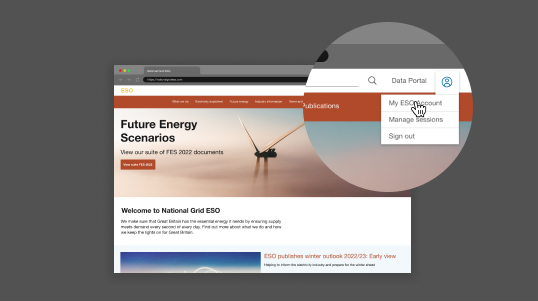Reserve is needed for frequency management when there is an imbalance between supply of energy and demand for energy.
System conditions are changing, and faster-acting services procured closer to real-time are required to restore frequency to within statutory limits within 60 seconds, recover frequency to within operational limits within 15 minutes, and to respond to transient supply demand imbalances that take pre-fault frequency close to operational limits.
Quick Reserve, separated into Negative Quick Reserve (NQR) and Positive Quick Reserve (PQR), is aimed primarily for reacting to pre-fault disturbances to restore the energy imbalance quickly and return the frequency close to 50.0 Hz.
On 27 June 24 we launched our EBR Article 18 consultation to Industry, which is open until 0900 29 July 2024 and we look forward to receiving feedback on all areas of the proposed service. If you have any questions or to schedule a call you can contact the team via email
| Completed | Published | Mid-July | August | September-October | November |
|---|---|---|---|---|---|
|
Image

|
|||||
All documents relating to the Quick Reserve (phase 1) consultation are available here to download. This consultation will close on 29 July 2024. Please be aware that there is a separate Article 18 consultation live for Dynamic Response services which includes changes to the response procurement rules.
| Name | Published Sort ascending |
|---|---|
| Quick Reserve - Form C | 27 Jun 2024 |
| Quick Reserve Letter and Mapping document | 27 Jun 2024 |
| Quick Reserve - Procurement Rules | 27 Jun 2024 |
| Response Procurement Rules (QR Changes) - Compare version | 27 Jun 2024 |
| Balancing Service Glossary General Terms - Compare version | 27 Jun 2024 |
| Quick Reserve - Form B | 27 Jun 2024 |
| Quick Reserve Service Terms | 27 Jun 2024 |
| Response Procurement Rules (QR changes) | 27 Jun 2024 |
| Balancing Service Glossary General Terms | 27 Jun 2024 |
| Quick Reserve Article 18 Response Pro Forma | 27 Jun 2024 |
| Name | Published Sort ascending |
|---|---|
| Quick Reserve - Maximum Recovery Period | 27 Jun 2024 |
| Quick Reserve Pricing Proposal | 27 Jun 2024 |
| Quick Reserve Summary Document | 27 Jun 2024 |
| Quick Reserve Market Design | 27 Jun 2024 |
Ahead of our planned EBR Article 18 consultation we are pleased to share our proposed service and procurement design for Quick Reserve.
We are eager to get your feedback on the proposed design and phased implementation timeline here this survey will be open until 18 April 2024
Proposed Design
Below you can find the documents relating to Quick Reserve.
12 June 2024
We are pleased to confirm that we will launch the EBR Article 18 consultation for the new Quick Reserve Phase 1 (BM only) service during the week commencing 24 June 2024. This is later that we had previously communicated to industry due to the additional feedback received on the service and procurement design which we have taken time to carefully consider and discuss with providers before proceeding.
Delivery of Quick Reserve Phase 1 service is planned to launch with the first auction on or around 28 November 2024 based on a decision from the authority on or around 1 November 2024.
We will be holding and industry webinar during this initial consultation period and will be publishing details of this shortly, meanwhile we would like to thank industry stakeholders for your patience and continued support as we progress with delivery of our suite of new reserve reform products.
19 May 2023
ESO has come to the decision to delay the delivery of the new Reserve reform products, Slow and Quick Reserve – originally planned for October and November 2023. As a result, we will not be launching our EBR Article 18 consultation to industry as planned at the end of May.
This decision has been taken in light of the significant changes that would have been required in our existing, legacy balancing systems and processes, given the complexity of the new service designs. In the midst of a complex and rapidly evolving systems change environment, we believe it is more prudent to re-evaluate these changes to consider if implementation into our legacy systems is still appropriate, as opposed to direct implementation into our Open Balancing Platform (OBP).
Postponing the rollout of our new Reserve services grants us the opportunity to re-examine our proposed service designs, evaluate our IT options, and collaborate with you more effectively. This will ensure that the best solutions are delivered and that the necessary updates to our balancing systems are apt for enhancing our operational toolkit and are better aligned with the implementation of our future systems.
In the coming weeks we will be looking to understand the extent to which we review the proposed services designs and IT solutions. We will then communicate how and when we intend to engage with you in this process via the Future of Balancing Services distribution list.
20 April 2023
Last month, we held a webinar on 9 March where we updated industry on our delivery plan and provided a refresh of the services (please refer to the Document Library tab for the documentation and recordings).
This delivery plan indicated launching our EBR consultation towards the end of April with the dependencies being further exploration of system changes and the quantum of change acceptable to market providers as well as the ENCC. We have also noted the feedback on Crossovers from the market and we are still analysing the most optimal solution for the end consumer.
As we are still working through these dependencies and feedback, the EBR consultation will be moved provisionally to the end of May.
We intend to update and confirm our delivery plan for Quick Reserve and Slow Reserve in Future of Balancing Services newsletter.
Upcoming events
There are no upcoming events planned.
Past events
Quick Reserve webinar 8 July 2024
Following the webinar held on 8 July 2024 we have shared the slides, Q&A, and recording of the webinar.
| Watch the webinar | Download the slides | Download the Q&A |
Industry workshop for Phase 1 Quick Reserve
To be held on 1 February 2024, 14:00-15:30.
| Watch the webinar | Download the slides |
Reserve Reform update webinar 19 December 2023
Following the webinar held on 19 December 2023, we have shared the slides and a recording of the webinar.
| Watch the webinar | Download the slides | Download the Q&A |

Further enquiries
Get in touch with the right team within Balancing Services, who are on hand to answer any questions you may have.

